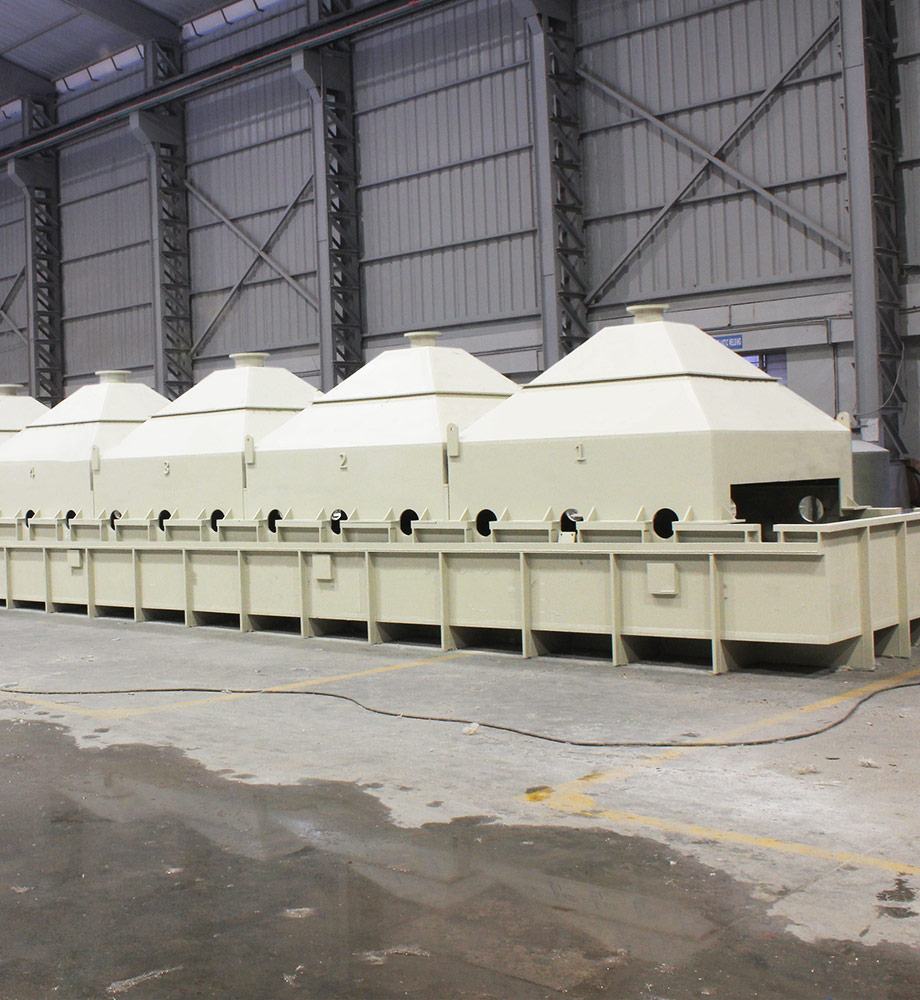Key Features
- Acid-Resistant Laminate: Thick FRP laminates (often vinyl ester or phenolic resin) protect against concentrated acids.
- Flat Bottom / Open Top: Rectangular or open-top tanks to accommodate metal parts.
- Drainage & Ventilation: Equipped with leak-proof drains and fume vents to handle hazardous vapors.
Benefits
- Cost Savings: Eliminates frequent replacement of steel tanks eaten away by acid.
- Safety: FRP is non-sparking and can be designed to contain spills.
Applications
- Steel Pickling: Removing oxides from stainless, carbon, or alloy steels.
- Desulfurization: Process tanks in sulfuric acid regeneration plants.
- Electroplating & Surface Finishing: Holding tanks for cleaning and etching.
Technical Specifications
- Acid Types: Suitable for HCl, HNO₃, and H₂SO₄ (up to specified concentrations).
- Volume: Typically ranges from 1 to 100 m³ per tank; modular configurations available.
- Temperature: Operates from ambient temperature up to approximately 60 °C, depending on application.
- Lining: Uses vinyl ester or PTFE lining for extreme service conditions.
Unique Selling Points
- Experience with Aggressive Media: Proven FRP designs for prolonged immersion in strong acids.
- Turnkey Pickling Lines: Integratable with FRP filtration, neutralization, and rinse tanks.

